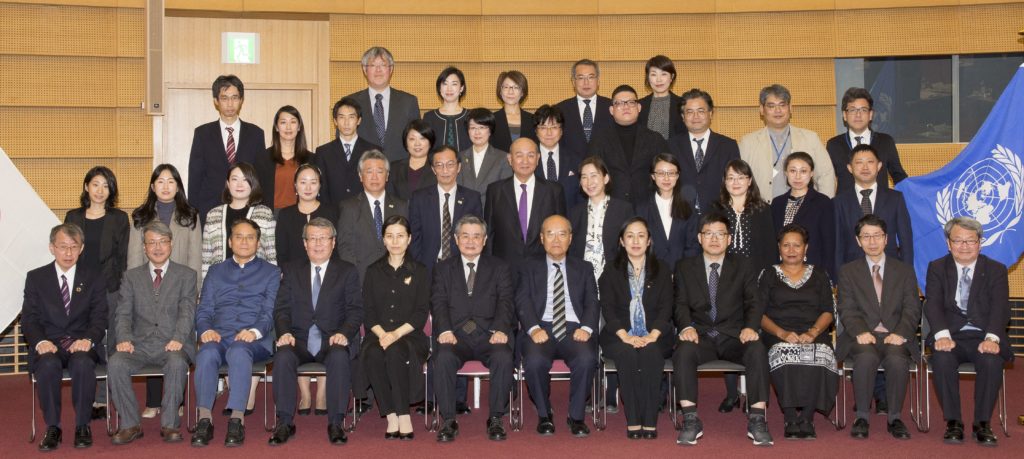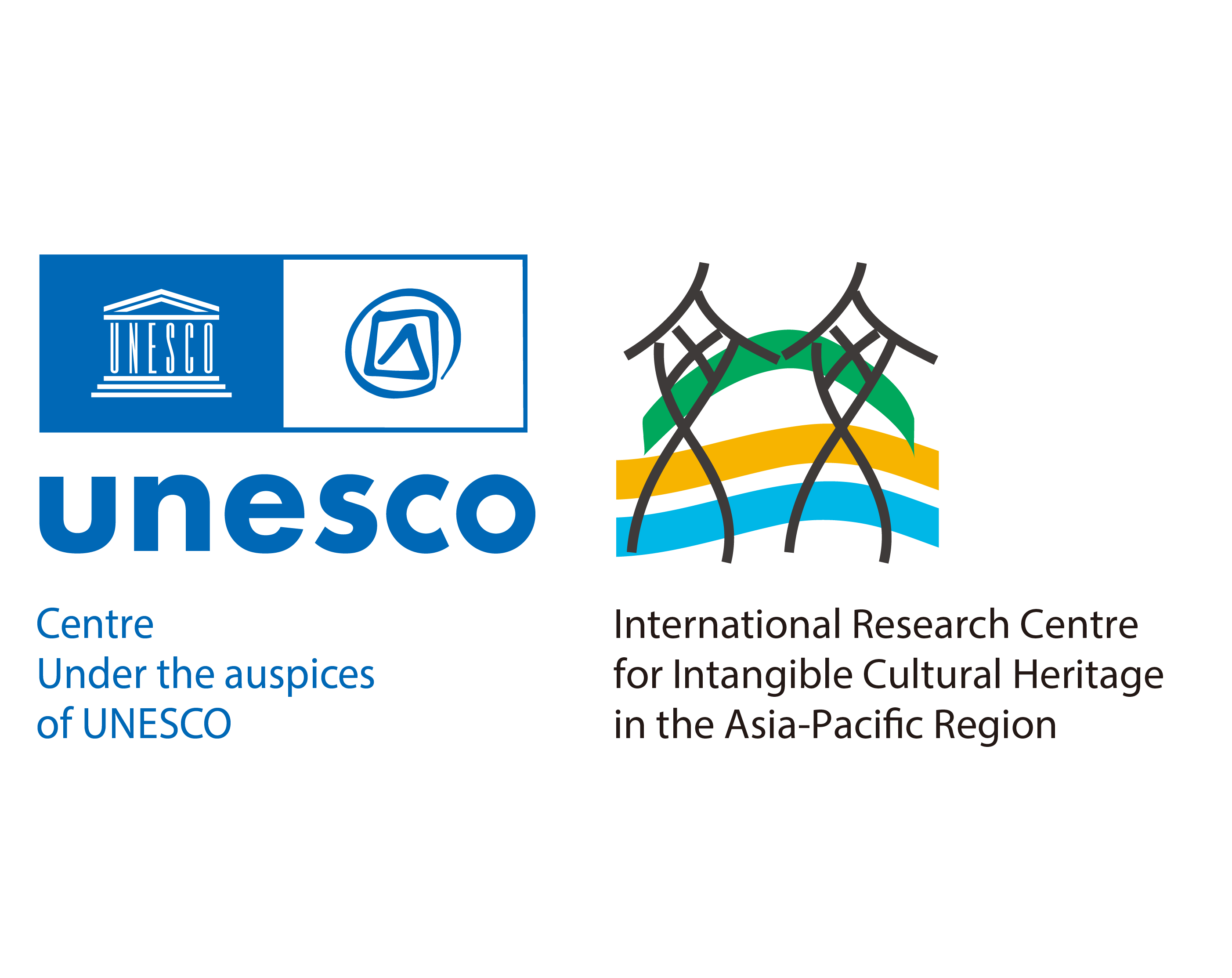
GREETINGS FROM THE DIRECTOR-GENERAL
Intangible cultural heritage (ICH), such as oral traditions and expressions, performing arts, and rituals, is also called living heritage. Being transmitted from generation to generation and transformed over time, ICH nurtures cultural diversity, which is a source of innovation, creativity, and exchange. In the current world with increased globalization, where we face the issues of maintaining cultural diversity and promoting sustainable development, there are high expectations for the contribution of culture to sustainable development. In addition, as mentioned in the United Nations Sustainable Development Goals (SDGs), the role of ICH including traditional knowledge and cultural practices held over generations by the communities should be further recognized.
The Asia-Pacific region, which covers two thirds of the world population, is the treasure house of ICH. However, this rich cultural diversity is currently endangered as a result of various factors such as social transformation, ageing, disasters, and conflicts. Safeguarding ICH is now undeniably an urgent issue, and international cooperation is crucial.
To address these concerns, the International Research Centre for Intangible Cultural Heritage in the Asia-Pacific Region (IRCI), as a research hub in the region in the field of ICH safeguarding, is committed to the creation of a platform for ICH research as well as various case studies on practices that address ongoing international issues, including Disaster Risk Management, SDGs, and the COVID-19 Pandemic. These activities are carried out in close cooperation with UNESCO and other related organizations such as universities, research institutes, governmental and non-governmental organizations, museums, and communities worldwide.
As an international institution situated in Japan, the forerunner of ICH safeguarding, IRCI will continue its efforts alongside diverse actors to revitalize ICH and promote its safeguarding in the Asia-Pacific region by implementing and facilitating relevant research programmes.
MACHIDA Daisuke
STAFF
- Director-General
- MACHIDA Daisuke
- General Affairs Section
-
- 2 Staff
- 1 Associate Fellow
- 1 Assistant Staff
- Research Section
-
- Head
- NOJIMA Yoko
- Associate Fellow
- YAMAMOTO Hitomi
- Associate Fellow
- YU Le
- Associate Fellow
- TSUJI Takashi
- Associate Fellow
- KIZAKI Chikako
- Associate Fellow
- MATSUYAMA Hitomi
- Associate Fellow
- SHIBUYA Momoyo
- Cooperative Researcher
-
ISHIMURA Tomo
(Tokyo National Research Institute for Cultural Properties)
HONORARY ADVISOR
- MATSUURA Koïchiro
- Former Director-General of UNESCO
Appointed as an IRCI honorary advisor since 1 October 2017.
With a variety of experience and knowledge from UNESCO and diplomatic career, Mr Matsuura gives important advice and support concerning the operation of IRCI.
SENIOR FELLOW
- KONO Toshiyuki
- Professor Emeritus, Kyushu University
Appointed as an IRCI senior fellow as of 1 October 2021.
Mr KONO had been a member of the Governing Board of IRCI for ten years since its establishment. As Senior Fellow, he continues to advise IRCI on its operation based on his rich experience and knowledge.
GOVERNING BOARD
The Governing Board, which consists of 10 experts and representatives of specialized institutions inside and outside Japan including a UNESCO representative, deliberates and approves all IRCI activities, including long-term and medium-term programmes, work plans, and reports.

Eighth Governing Board Meeting of IRCI (November 2019)
- Governing Board Members
-
- SHIMATANI Hiroyuki
- President, National Institutes of Cultural Heritage, Japan
- TOKURA Shunichi
- Commissioner, Agency for Cultural Affairs, Japan
- KUROKAWA Hiroko
- Member, Japanese National Commission for UNESCO/Director and Professor, The University Art Museum, Tokyo University of the Arts, Japan
- ZHU Yanhui
- Director, Division of International Organizations, Bureau of International Exchanges and Cooperation, Ministry of Culture and Tourism, People’s Republic of China
- SONG Inheon
- Director, World Heritage Division, Korea Heritage Service, Republic of Korea
- YEO Kirk Siang
- Group Director (Policy and Community), National Heritage Board, Singapore
- NAGAFUJI Hideki
- Mayor, Sakai City, Japan
- DUONG Bich Hanh
- Programme Specialist for Culture, UNESCO Beijing Office
- SEKI Yuji
- Director-General, National Museum of Ethnology, Japan
ADVISORY BODY
The Advisory Body, comprised of experts well versed in the field of intangible cultural heritage, provides professional perspectives to the Director-General upon elaboration and implementation of IRCI’s long-term, medium-term programmes, and work plans. Moreover, the Advisory Body gives advice to the Governing Board on the report submitted by the IRCI to the Board.
- Advisory Body Members
-
- Christopher BALLARD
- Associate Professor, School of Culture, History and Language, College of Asia and the Pacific, the Australian National University
- HAYAMI Yoko
- Inspector General, Japan Society for the Promotion of Science
- Hanafi HUSSIN
- Honorary Professor, University of Malaya
- Naomi FAIK-SIMET
- Assistant Director-Dance, the Institute of Papua New Guinea Studies
- Associate Professor, Faculty of Global Culture, Kyoto Seika University, Japan
LOGO

- Logo of UNESCO Category 2 Centre
in the field of intangible cultural heritage
Logo of IRCI
Culture is an important element and heritage that imparts richness to nations. To transmit intangible cultural heritage through generations, connections among people are necessary. The IRCI logo incorporates the Japanese characters for “culture” to indicate “people”, who are the bearers of the culture. This is symbolic of our vision of culture being transmitted from person to person within communities and groups. The background colours represent the Asia-Pacific region, with green signifying mountains, yellow the land, and blue the ocean.



